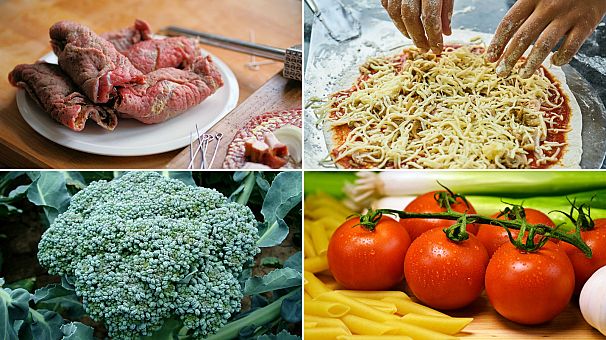Food prices in Britain could soar and supply could be throttled if Westminster fails to secure a post-Brexit free trade deal with the EU by 2020, according to a new parliamentary report.
Food prices in Britain could soar and supply could be throttled if Westminster fails to secure a post-Brexit free trade deal with the EU by 2020, according to a parliamentary report released on Thursday.
 ADVERTISEMENT
ADVERTISEMENT
 ADVERTISEMENT
ADVERTISEMENT
A default 22% tariff from the World Trade Organisation (WTO) would otherwise be imposed on food imports, of which 30% comes from the EU and 11% from non-EU countries.
“While this would not equate to a 22% increase in food prices for consumers, there can be no doubt that prices paid at the checkout would rise,” said the report, which was compiled by the House of Lords European Union Committee.
“To counteract this the Government could cut tariffs on all food imports, EU and non-EU, but this would pose a serious risk of undermining UK food producers who could not compete on price,” it continued.
The paper went on to cite concerns about Westminster’s intention to leave the Customs Union, in which member countries scrap customs duties for internal trade and agree to charge the same import fees.
“If no agreement is reached, and food imports from the EU are subject to the same customs and border checks as non-EU imports, the UK does not have the staff, IT systems or physical infrastructure to meet that increased demand,” it read.
“Any resulting delays could choke the UK’s ports and threaten the availability of some food products for UK consumers.”
The report added that Britain will struggle to plug any gap left by a decrease on EU food imports if the costs become too high.
“UK self-sufficiency has been declining for the past 30 years, and reversing that would require financial incentives, investment in new technology and skills, and continued access to the EU workforce (at least in the short term),” it read. “It would also take time and, given the restrictions of landscape and climate, there are some foods that could not be grown here.”
Which foods are likely to be affected?
The UK imports just over half of its food and the EU is by far its biggest supplier. But if WTO most-favoured-nation (MFN) tariffs hit, it's British consumers who will be footing the bill, one way or another.
And the British Retail Consortium (BRC) and UK Trade Policy Observatory (UKTPO) have calculated how retail prices could change in Britain’s grocery shops post-Brexit, as well as the foods that could soon become a luxury.











